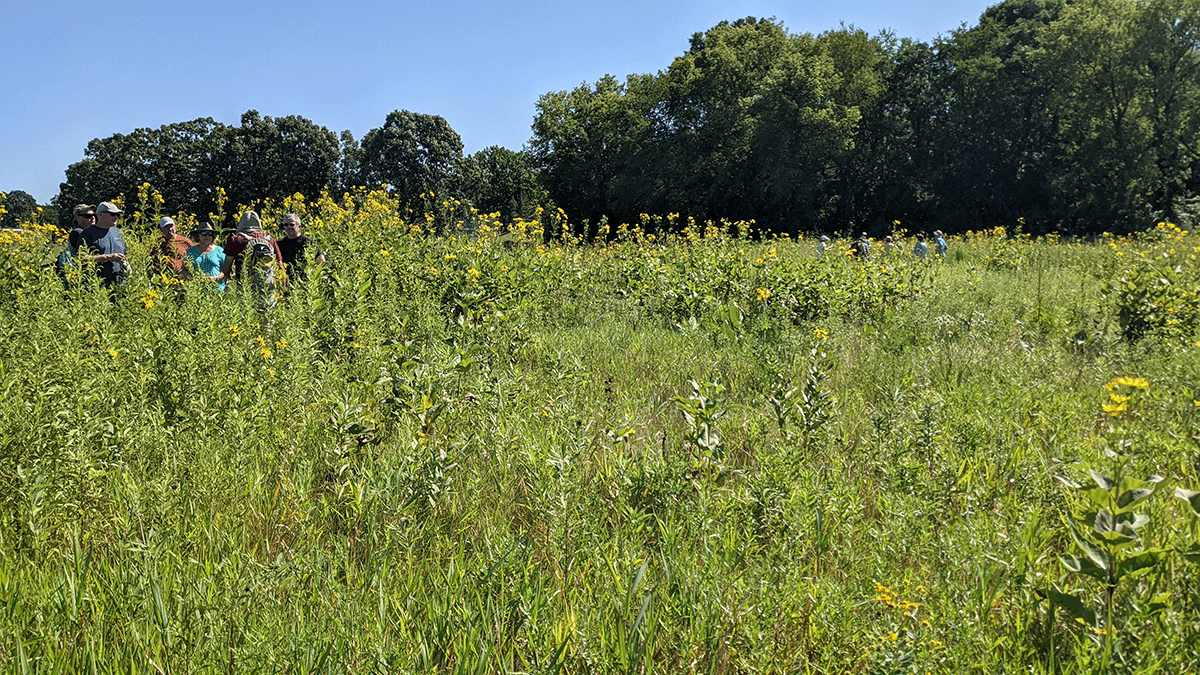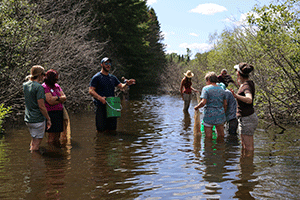Friends of Urban Nature (FUN), a coalition of Madison Parks, friends groups, and nature groups, is happy to offer its sixth Summer Wisconsin Master Naturalist training. Held on a series of Saturdays in July and August, this training offers a special focus on learning about nature recreation, nature education, nature restoration, and connecting communities and kids with nature.
FIELD TRIPS
Each Saturday session has a mix of indoor and outdoor education featuring morning and afternoon field trips. Naturalists and topic experts will help you discover and interpret the history, geology, human impacts, ecology, birds and wildlife of nearby urban natural areas including Warner Park, Cherokee Marsh, UW Arboretum, and the Lakeshore Nature Preserve.
TOPICS
Wisconsin’s historic prairies, oak openings, lakes, rivers, and streams, and the native birds, wildlife and natural ecosystems they support, and related topic chapters from the Master Naturalist training materials will be woven into all of our studies. Participants will also meet representatives of DNR, parks, friends and nature groups to learn about many opportunities for Master Naturalists to engage as volunteers, participate in citizen science, help provide leadership for activities, job opportunities, and community involvement.
The Wisconsin Master Naturalist program is a network of well-informed volunteers dedicated to conservation service, leadership, and lifelong learning. The Master Naturalist training provides 40 hours of education in a variety of natural history topics and Master Naturalist service areas. Through expert-led trainings, Master Naturalists are equipped to address challenges facing the state by making positive impacts through stewardship, citizen science, and educational activities. Trainings have an emphasis on outdoor field experiences with some classroom instruction and are taught by professional natural resources educators and scientists. Once trained, Wisconsin Master Naturalists record 40 hours of service and 8 hours of advanced training each year to maintain certification and receive a recognition pin.





